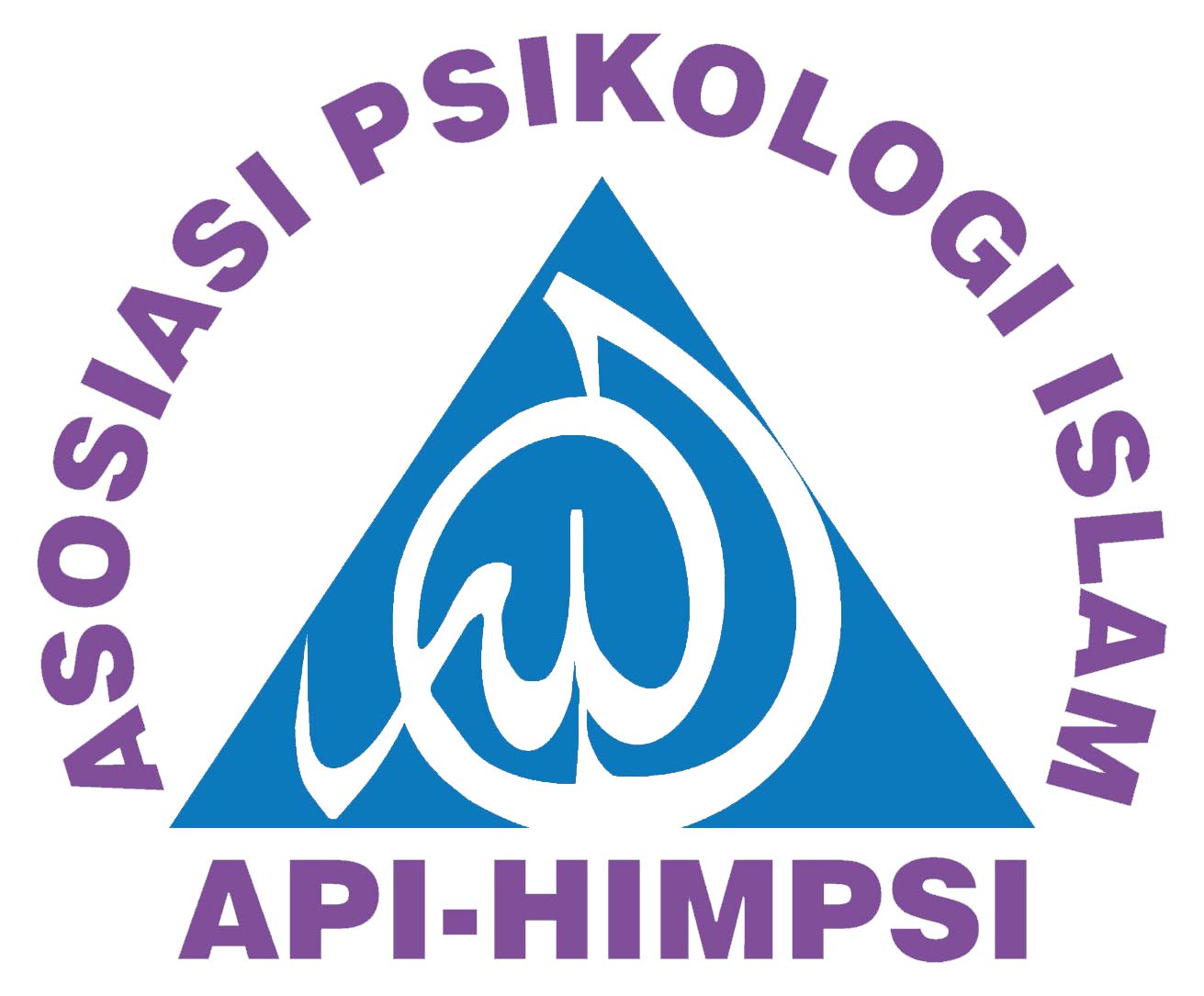The Bingah Scale: A Development of the Happiness Measurement Scale in the Sundanese
DOI:
https://doi.org/10.15575/jpib.v3i1.6478Keywords:
Happiness, Psychometric Properties, Scale Development, Sundanese, The Bingah ScaleAbstract
References
Aiken, L. R. (1985). Three coefficients for analyzing the reliability and validity of ratings. Educational and Psychological Measurement, 45(1), 131–142. https://doi.org/10.1177/0013164485451012
Anggoro, W. J., & Widhiarso, W. (2010). Konstruksi dan Identifikasi Properti Psikometris Instrumen Pengukuran Kebahagiaan Berbasis Pendekatan Indigenous Psychology : Studi Multitrait †Multimethod. Psikologi, 37(2), 176–188.
Argyle, M., & Hills, P. (2002). The Oxford Happiness Questionnaire: a compact scale for the measurement of psychological well-being. Personality and Individual Differences, 33(7), 1073–1082. https://doi.org/10.1016/S0191-8869(01)00213-6
Azwar, S. (2017). Metode penelitian psikologi (2nd ed.). Yogyakarta: Pustaka Pelajar.
Baumert, A., Schmitt, M., Perugini, M., Johnson, W., Blum, G., Borkenau, P., … Wrzus, C. (2017). Integrating personality structure , personality process, and personality development. European Journal of Personality, 528, 503–528. https://doi.org/10.1002/per.2115
Beaton, D. E., Bombardier, C., Guillemin, F., Ferraz, M. B., Borsa, J. C., Wamser, G. H., … Schoemaker, M. M. (2013). Original Report Life Habits in Myotonic Dystrophy Type 1. Revista Brasileira de Ortopedia, 10(17), 1–10. https://doi.org/10.1111/cch.12124
BPS. (2017). Indeks kebahagiaan provinsi di Indonesia.
Fathurroja, A., Mumtazah, H., Rosiana, R., Pudoli, S. B. M., & Fridayanti, F. (2018). Gambaran identitas etnis remaja Suku Jawa dan Sunda. Jurnal Psikologi Islam Dan Budaya, 1(2), 107–112. https://doi.org/10.15575/jpib.v1i2.3412
Fitriyani, A., Suryadi, K., & Syam, S. (2015). Peran keluarga dalam mengembangkan nilai budaya sunda: Studi deskriptif terhadap keluarga sunda di komplek perum riung Bandung. Jurnal Sosietas, 5(2).
Fleeson, W., & Jayawickreme, E. (2014). Whole trait theory. Journal of Research in Personality, 1–11. https://doi.org/10.1016/j.jrp.2014.10.009
Grinde, B. (2002). Happiness in the perspective of evolutionary psychology. Journal of Happiness Studies, 3(December), 331–354.
Helliwell, J. F., Huang, H., Wang, S., & Shiplett, H. (2018). International migration and world happiness. World Happiness Report 2018, 13–44. Retrieved from https://s3.amazonaws.com/happiness-report/2018/WHR_web.pdf
Helliwell, J. F., Layard, R., & Sachs, J. D. (2018). World happiness report. World Happiness Report.
Hills, P., & Argyle, M. (2001). Emotional stability as a major dimension of happiness. Personality and Individual Differences, 31(8), 1357–1364. https://doi.org/10.1016/S0191-8869(00)00229-4
Hinkin, T. R., Tracey, J. B., & Enz, C. A. (1997). Scale construction: Developing reliable and valid measurement instruments. Journal of Hospitality & Tourism Research, 21(1), 100–120. https://doi.org/10.1177/109634809702100108
Jaenudin, U., & Tahrir, T. (2019). Studi religiusitas, budaya Sunda, dan perilaku moral pada masyarakat Kabupaten Bandung. Jurnal Psikologi Islam Dan Budaya, 2(1), 1–8. https://doi.org/10.15575/jpib.v2i1.3445
Marliani, R., Ramdani, Z., & Imran, J. M. H. (2019). Validation of happiness scale convergence in santri through Multi-trait Multi-method Analysis. Psikohumaniora: Jurnal Penelitian Psikologi, 4(2), 143–156. https://doi.org/10.21580/pjpp.v4i2.3670
Martin E.P. Seligman. (2002). Authentic Happiness: Using the New Positive Psychologyto Realize Your Potential For Lasting Fulfillment. New York: Free Press.
Muhopilah, P., Gamayanti, W., & Kurniadewi, E. (2018). Hubungan kualitas puasa dan kebahagiaan santri pondok pesantren Al-Ihsan. Jurnal Psikologi Islam Dan Budaya, 1(1), 53. https://doi.org/10.15575/jpib.v1i1.2071
Perceka, M. Z., Fahmi, I., & Kurniadewi, E. (2019). Identitas Etnik dan Asertivitas Mahasiswa Suku Sunda. Jurnal Psikologi Islam Dan Budaya, 2(2), 139–152.
Rahman, A. A., Sarbini, S., Tarsono, T., Fitriah, E. A., & Mulyana, A. (2018). Studi eksploratif mengenai karakteristik dan faktor pembentuk identitas etnik Sunda. Jurnal Psikologi Islam Dan Budaya, 1(1), 1. https://doi.org/10.15575/jpib.v1i1.2072
Ramdani, Z. (2018). Construction of academic integrity scale. International Journal of Research Studies in Psychology, 7(1), 87–97. https://doi.org/10.5861/ijrsp.2018.3003
Royanulloh, R., & Komari, K. (2019). Bulan ramadan dan kebahagiaan seorang muslim. Jurnal Psikologi Islam Dan Budaya, 2(2), 51–62. https://doi.org/10.15575/jpib.v2i2.5587
Ryff, DC. (1989). Happiness is everything, or is it? Explorations on the meaning of Psychological Well-Being. Journal of Personality and Social Psychology, 57(6), 1069–1081.
Salsabila, D. F., Rofifah, R., Natanael, Y., & Ramdani, Z. (2019). Uji Validitas Konstruk Indonesian-Psychological Measurement of Islamic Religiousness (I-PMIR). Jurnal Psikologi Islam Dan Budaya, 2(2), 1–10. https://doi.org/10.15575/jpib.v2i2.5494
Saraswati, I. (2014). Gambaran kebahagiaan mahasiswa fakultas psikologi universitas padjajaran dengan latar belakang budaya batak, jawa, minang, dan sunda. Universitas Padjajaran.
Seligman, M. E. ., & Csikszentmihalyi, M. (2014). Positive psychology: An introduction. In Flow and the Foundations of Positive Psychology (pp. 279–298). https://doi.org/10.1007/978-94-017-9088-8
Downloads
Additional Files
Published
Issue
Section
Citation Check
License
Authors who publish with this journal agree to the following terms:
- Authors retain copyright and grant the journal right of first publication with the work simultaneously licensed under a Creative Commons Attribution License that allows others to share the work with an acknowledgment of the work's authorship and initial publication in this journal.
- Authors are able to enter into separate, additional contractual arrangements for the non-exclusive distribution of the journal's published version of the work (e.g., post it to an institutional repository or publish it in a book), with an acknowledgment of its initial publication in this journal.
- Authors are permitted and encouraged to post their work online (e.g., in institutional repositories or on their website) prior to and during the submission process, as it can lead to productive exchanges, as well as earlier and greater citation of published work (See The Effect of Open Access).






